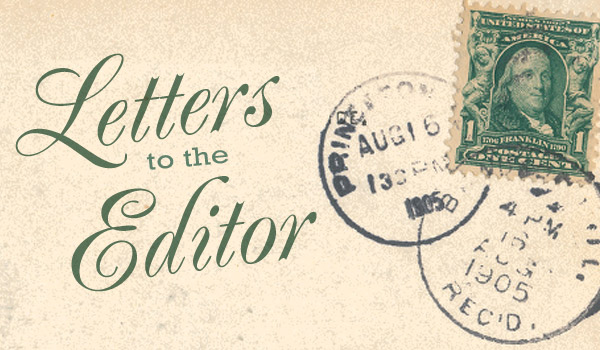Dear Sir,
In my letter published 25th May 2018, in reply to MP Phil Wilson’s call for a ‘Peoples Vote, I pointed out that Phil Wilson was, ‘playing the man (Jacob Rees-Mogg) and not the (Brexit) ball’. Indeed, I pointed out that this made him look like a bad loser. I described Jacob Rees-Mogg as being, “a very intelligent happily married family man who is open and honest about both his political and personal views”. On the other hand, Phil Wilson disliked/was afraid of him due to the fact that he is wealthy.
In her letter in the Newton News 1st of June 2018, Shelagh McFarlane commends me for my admiration for Jacob Rees-Mogg, but warns me that his political and personal views on most subjects are not hers. By this I assume she means, not ‘mainstream’. However since Jacob Rees-Mogg voted to Leave, and was elected MP, on a Leave manifesto, in a constituency where the majority had previously voted to Remain, it is clear that, on Brexit at least, he is more ‘mainstream’ than Phil Wilson and Shelagh McFarlane! Indeed, like Phil Wilson, Shelagh McFarlane is ‘playing the man and not the ball’. Jacob Rees-Mogg is only one of circa. 17.4 Million who voted Leave. Why single him out? Why not pick on me?
However, back to Phil Wilson’s proposed ‘People’s Vote’. Prior to David Cameron including the promise of a Referendum in his 2015 manifesto, both main parties in our, so called, Parliamentary Democracy had refused to contemplate letting the people decide on the EU.
Four Million votes for UKIP and a Coalition Government that followed had changed his mind! The people elected a Conservative Government in that General Election because they promised a Leave/ Remain Referendum in their manifesto. This being the case, it is not unreasonable for those people to demand that the holding of a second Referendum be voted on in a General Election.
The Conservative Manifesto could say they would not grant another Referendum and the Labour / Momentum manifesto could say that they would. The fact of the matter is that, in a Parliamentary Democracy, a Referendum can only be democratic if the electorate have had a chance to vote for one prior to one being held.
Alastair P.G. Welsh










